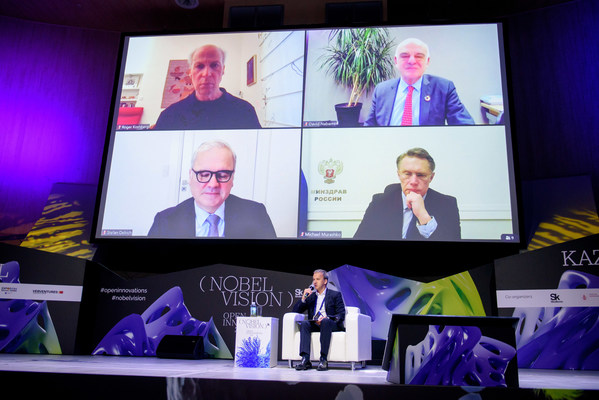Company's largest syndicated green financing is recognized with "Best Property Deal" in SE Asia at the FinanceAsia Achievement Awards 2023
JOHOR BAHRU, Malaysia, Dec. 8, 2023 /PRNewswire/ -- GDS, a leading developer and operator of high-performance data centers, announced today that it has secured a syndicated green financing facility of MYR1.27 billion from: UOB Malaysia, Bank of China (Malaysia) Berhad, OCBC Bank (Malaysia) Berhad and Standard Chartered Bank (Malaysia) Berhad.
The syndicated green financing for GDS is the largest secured to date by the company. This project not only represents a significant foreign direct investment into Malaysia, but also highlights GDS's sustainability commitment and reinforces its positive impact in the region. Proceeds from the loan will be used to complete the development of Nusajaya Tech Park (NTP) Data Center Campus Plot 1 in Johor, Malaysia. Last week, the secured green term loan facility was also awarded the "Best Property Deal" in Southeast Asia at the FinanceAsia Achievement Awards 2023.
UOB Malaysia serves as the Sole Coordinator and jointly acts as Green Loan Coordinator with Standard Chartered Bank (Singapore) Limited for this transaction. Additionally, UOB Malaysia jointly acts as Mandated Lead Arranger and Bookrunner (MLAB) with Bank of China (Malaysia) Berhad, OCBC Bank (Malaysia) Berhad, and Standard Chartered Bank (Singapore) Limited.
Mr. William Huang, Chairman and CEO of GDS said, "We are excited to announce our collaborations with these highly prestigious and forward-thinking banks. With their support, these green loans will fuel our business with green energy, empowering us to extend our reach and embark on a sustainable journey in Southeast Asia. As we set our sights on the future, we aspire to foster stronger bonds with local financing organizations, cultivating a dynamic ecosystem that champions green advancement and propels the digital economy on a regional scale."
Ms. Ng Wei Wei, Chief Executive Officer, UOB Malaysia said, "Malaysia continues to benefit from global supply chain diversification and the sizeable investments into data centers is testament to the country's potential to be a key data center hub in Asia. UOB has been supporting GDS in its regional ambitions through our strong connectivity and we are honoured to be given the mandate as sole coordinator and joint MLAB for their maiden venture in Malaysia. Our financing for GDS's state-of-the-art green data center underscores our commitment to support the nation's net zero ambitions and aspiration to be a leading regional data center hub. It is also in line with our commitment to help our clients transition into the green economy."
Ms. Tan Ai Chin, Managing Director, Senior Banker and Head of Investment Banking, OCBC Bank (Malaysia) Berhad said, "We are glad to support GDS's sustainable journey in Southeast Asia and its aspiration of becoming the first data center operator to achieve carbon neutrality in this region, with 100% use of renewable energy by 2030. OCBC Bank has been at the forefront of the ESG agenda, proactively and progressively driving changes in the financial industry by innovating effective financial solutions that can best encourage and incentivize for sustainable best practices. We are confident that the collaboration with GDS has great potential to benefit Malaysia as this collaboration will accelerate the growth of Malaysia's digital economy."
Mr. Mak Joon Nien, Chief Executive Officer of Standard Chartered Bank (Malaysia) Berhad said, "Sustainability is a key pillar at Standard Chartered and we are highly supportive of clients who consciously make business decisions and investments that have a positive impact. Through this, we are playing our role as key intermediaries in the financial system in ensuring that financing reaches the right projects to keep the momentum going."
The Phase 1 of the GDS NTP campus covers a total net floor area of 30,312 square meters and boasts an IT power capacity of 69.9 MW. The campus has embraced a remarkable array of sustainable initiatives, notably the utilization of prefabricated infrastructure and liquid-cooling solutions. The state-of-the-art implementation of prefabricated design enables swift delivery of NTP1 within a 14-month timeframe, effectively minimizing construction workload and streamlining the entire delivery process.
Meanwhile, the adoption of liquid-cooling technology facilitates a substantial reduction in Power Usage Effectiveness (PUE), thereby bolstering overall energy efficiency. With the grant of this sustainable financing solution, GDS is poised to actively promote its cutting-edge low carbon footprint solutions and strive for the Gold LEED certification for all buildings within the campus.
[ENDS]
About GDS Holdings Limited
GDS Holdings Limited (NASDAQ: GDS; HKEX: 9698) is a leading developer and operator of high-performance data centers in China and Southeast Asia. The Company's facilities are strategically located in primary economic hubs where demand for high-performance data center services is concentrated. The Company also builds, operates and transfers data centers at other locations selected by its customers in order to fulfill their broader requirements. The Company's data centers have large net floor area, high power capacity, density and efficiency, and multiple redundancies across all critical systems. GDS is carrier and cloud-neutral, which enables its customers to access the major telecommunications networks, as well as the largest PRC and global public clouds, which are hosted in many of its facilities. The Company offers co-location and a suite of value-added services, including managed hybrid cloud services through direct private connection to leading public clouds, managed network services, and, where required, the resale of public cloud services. The Company has a 22-year track record of service delivery, successfully fulfilling the requirements of some of the largest and most demanding customers for outsourced data center services in China. The Company's customer base consists predominantly of hyperscale cloud service providers, large internet companies, financial institutions, telecommunications carriers, IT service providers, and large domestic private sector and multinational corporations.
 Pages you might like
Pages you might like








 Latest information
Latest information
 Follow official account
Follow official account
 Online support
Online support
 鄂ICP备2022017323号
鄂ICP备2022017323号
 鄂公网安备 42018502006493
鄂公网安备 42018502006493
 Launch Exhibition
Launch Exhibition
 Release information
Release information



 Today's topic
Today's topic








